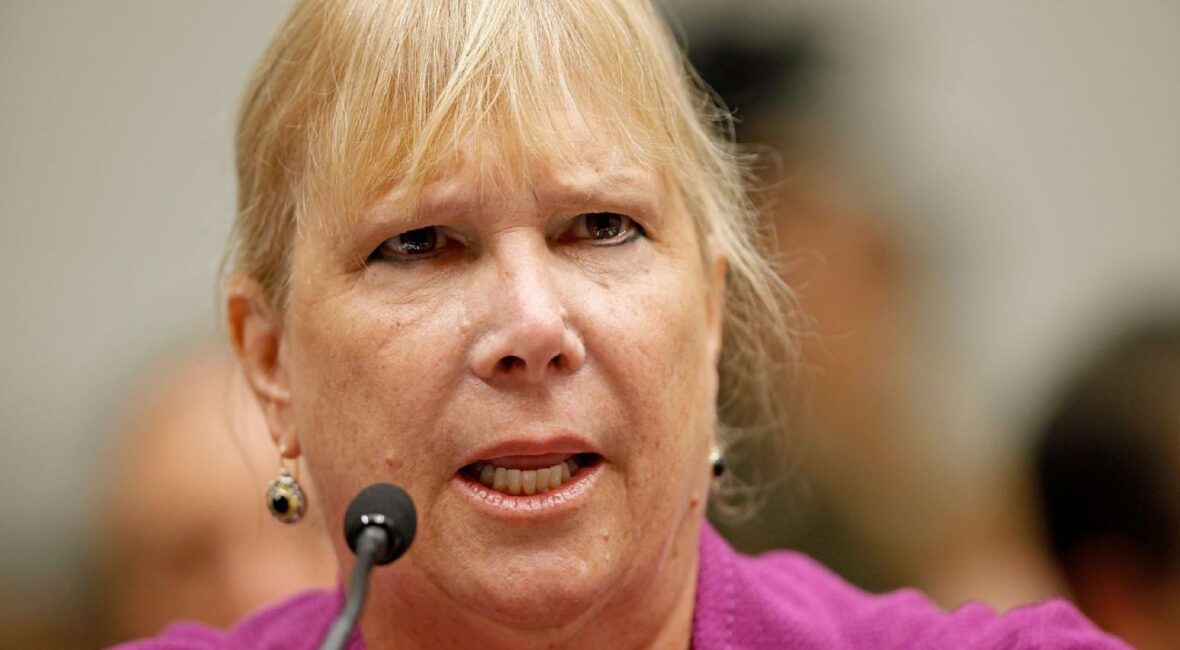TAMPA, Fla. — Former Tampa Bay Buccaneers team president and senior executive Gay Culverhouse, who devoted her life to helping former NFL players dealing with health issues including chronic traumatic encephalopathy (CTE), has died at the age of 73, a family spokesperson told the New York Times.
Culverhouse, the daughter of late Buccaneers owner Hugh Culverhouse, died Wednesday at her home in Fernandina Beach, Florida. Culverhouse suffered from complications from myelofibrosis, a form of chronic leukemia inhibiting the production of red blood cells. She had battled the condition, which left her severely anemic, since 2003.
She was originally given just five years to live and survived 17 years with the illness.
“We are saddened to hear of the passing of Gay Culverhouse earlier this week,” Buccaneers owner and co-chairman Bryan Glazer said in a statement. “During her family’s ownership of the Buccaneers, Gay was a leading figure in and around the Tampa Bay community who was defined by her compassion for helping others. Her tireless work as an advocate for retired NFL players is also an important part of her personal legacy. We send our heartfelt condolences to her children, Leigh and Chris, and the entire Culverhouse family.”
Culverhouse joined the Buccaneers in 1986, years after her father was awarded the expansion Buccaneers in 1974. Before joining the Buccaneers, she worked as an instructor at the University of South Florida College of Medicine from 1982-1986, specializing in child psychiatry after earning her doctorate from Columbia University.
She remained with the organization until 1994, resurfacing 15 years later to serve as an advocate for retired players, testifying in a House Judiciary hearing on head injuries among NFL players in 2009.
“One of the things you, as a committee, need to understand very clearly is the fact that the team doctor is hired by the coach and paid by the front office,” Culverhouse said. “This team doctor is not a medical advocate for the players. This team doctor’s role is to get that player back on the field, even if that means injecting the player on the field.”
“My men have headaches that never stop. They cannot remember where they are going or what they want to say without writing it down. Some are on government welfare. Some are addicted to pain medication. Some are dead.”
She called for mandatory benching of players suffering from concussions and for independent neurologists not affiliated with teams to be on the field for every game evaluating players. Thanks to her efforts, the league implemented this policy in 2013, which includes fines and even forfeiture of draft picks should teams fail to follow concussion guidelines.
It was the death of former Buccaneers lineman Tom McHale of an accidental drug overdose in 2008 that prompted Culverhouse to take up the cause of helping former players. McHale was just 45, but his brain, researchers found, was marked by signs of the neurological disease CTE.
“I became very concerned and started looking more thoroughly into concussions,” she said. “And I thought, ‘I’ve got to do something. I can’t let this fester.’ “
She formed the nonprofit Gay Culverhouse Players’ Outreach Program, paying for medical exams for dozens of retired players while assisting them with the necessary paperwork to receive medical benefits.
When asked why she chose to adopt the cause of retired NFL players, Culverhouse said in 2010, “Because it needs to be done. If not me, then who?”
Culverhouse didn’t shy away from her father’s unpopular and often controversial decisions, which included a low-ball salary offer to then-Buccaneers quarterback Doug Williams, who would later become Super Bowl MVP as a member of the
Lionel Messi is so angry with Barcelona that he could leave when his contract expires next summer.
The 33-year-old is upset that recent reports make him look responsible for the club’s troubles, and he’s frustrated about the squad’s lack of quality, sources told ESPN’s Moises Llorens.
As a result, Messi has refused to enter negotiations over a new contract, according to Cadena Ser’s Manu Carreno, and he could depart after his 17th season with the Blaugrana.
If Barcelona can’t repair their relationship with Messi, they could lose the six-time Ballon d’Or winner on a free transfer when his deal runs out in June 2021.
Messi had the opportunity to move on from the club this summer, but a clause allowing him to terminate his contract reportedly expired last month. The Argentine was given until May to decide, according to Llorens.
Problems began in January when Barcelona sporting director Eric Abidal suggested the players are to blame for the firing of manager Ernesto Valverde. In an uncharacteristic rebuke, Messi snapped back at Abidal, saying he was “encouraging” rumors and avoiding responsibility.
In April, Messi said he was surprised club officials would question whether the players would accept pay cuts during the coronavirus pandemic.
President Josep Maria Bartomeu is looking to reach a new deal with Messi before leaving his post in 2021. Bartomeu was reportedly hoping to sign one of Lautaro Martinez or Neymar to convince Messi the team is still competitive.
The pandemic may have changed all that. Barcelona had already lost around €120 million in matchday revenue and TV and commercial income by the start of May, vice president Jordi Cardoner told ESPN.
Messi scored his 700th goal in Tuesday’s 2-2 draw with Atletico Madrid. Barcelona are currently four points behind Real Madrid in the La Liga standings with five matches remaining.




